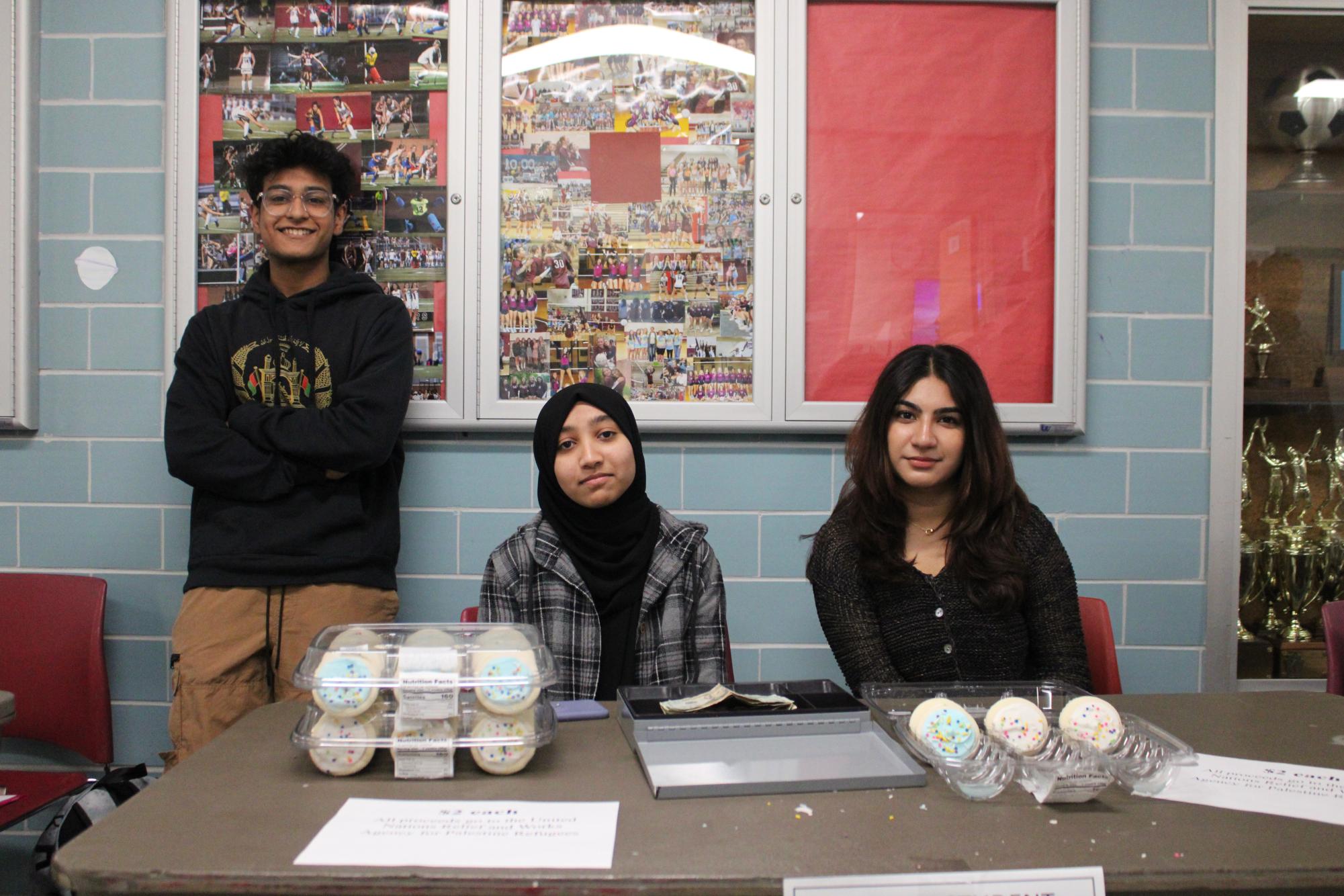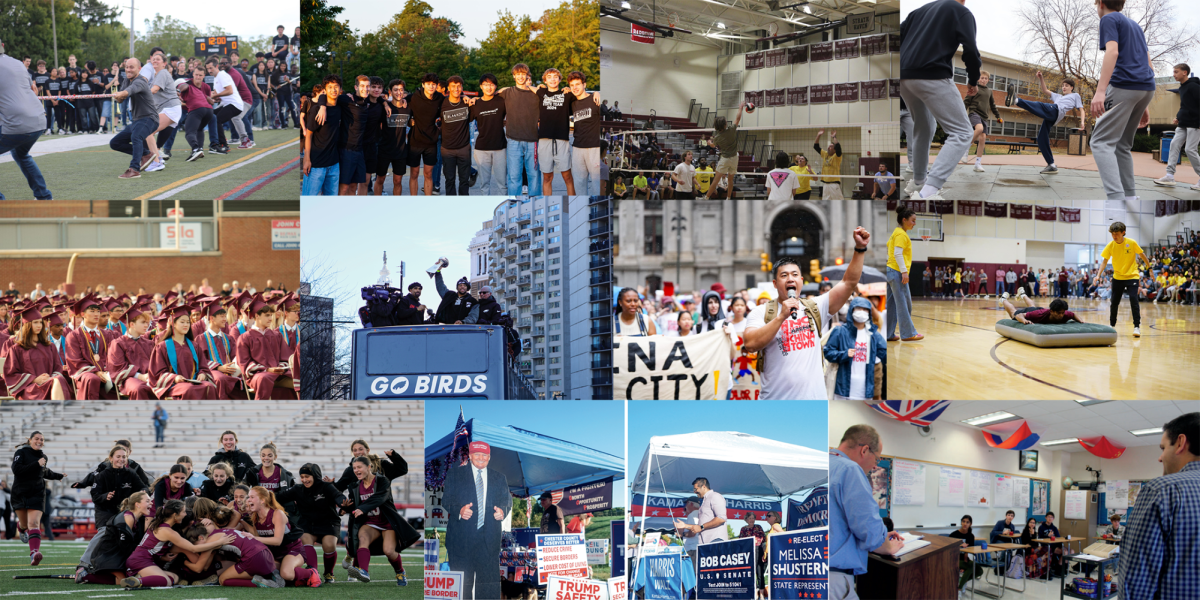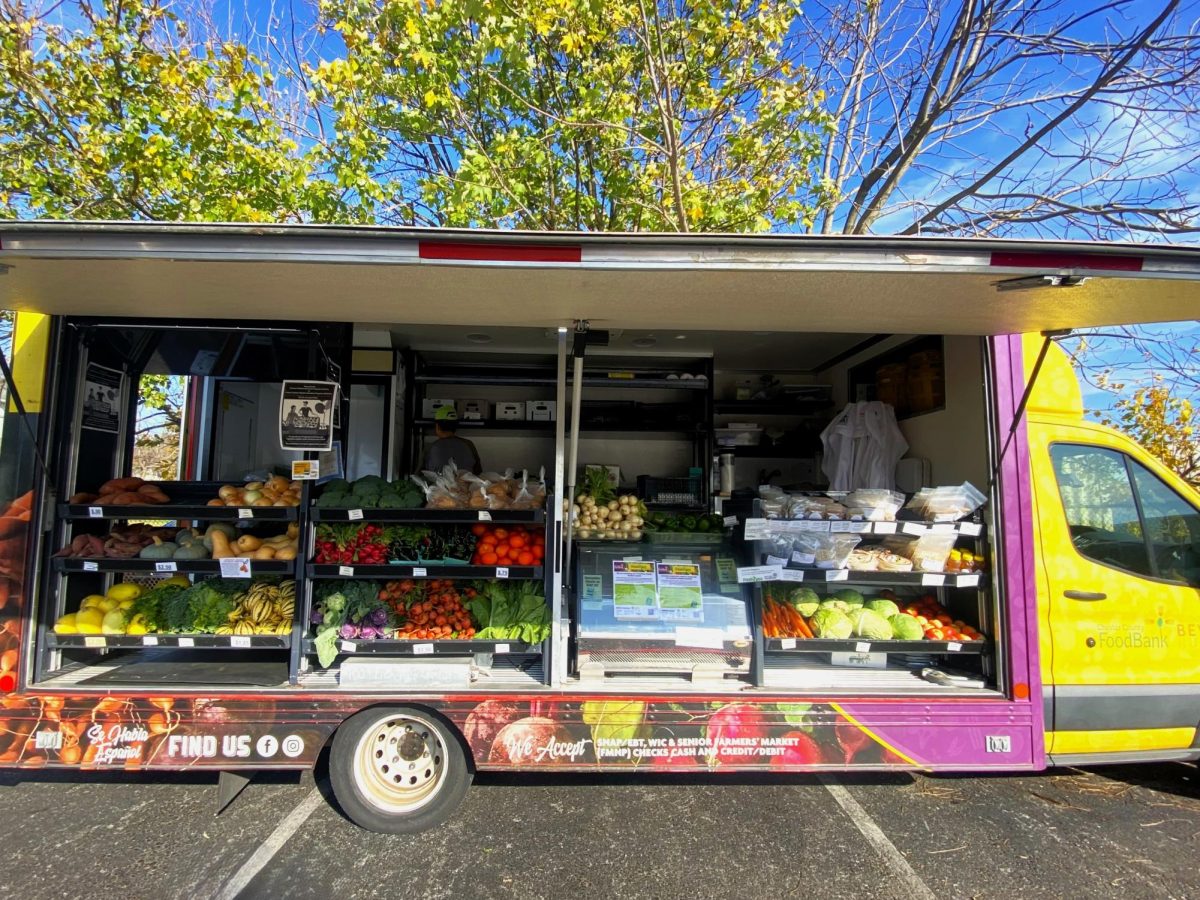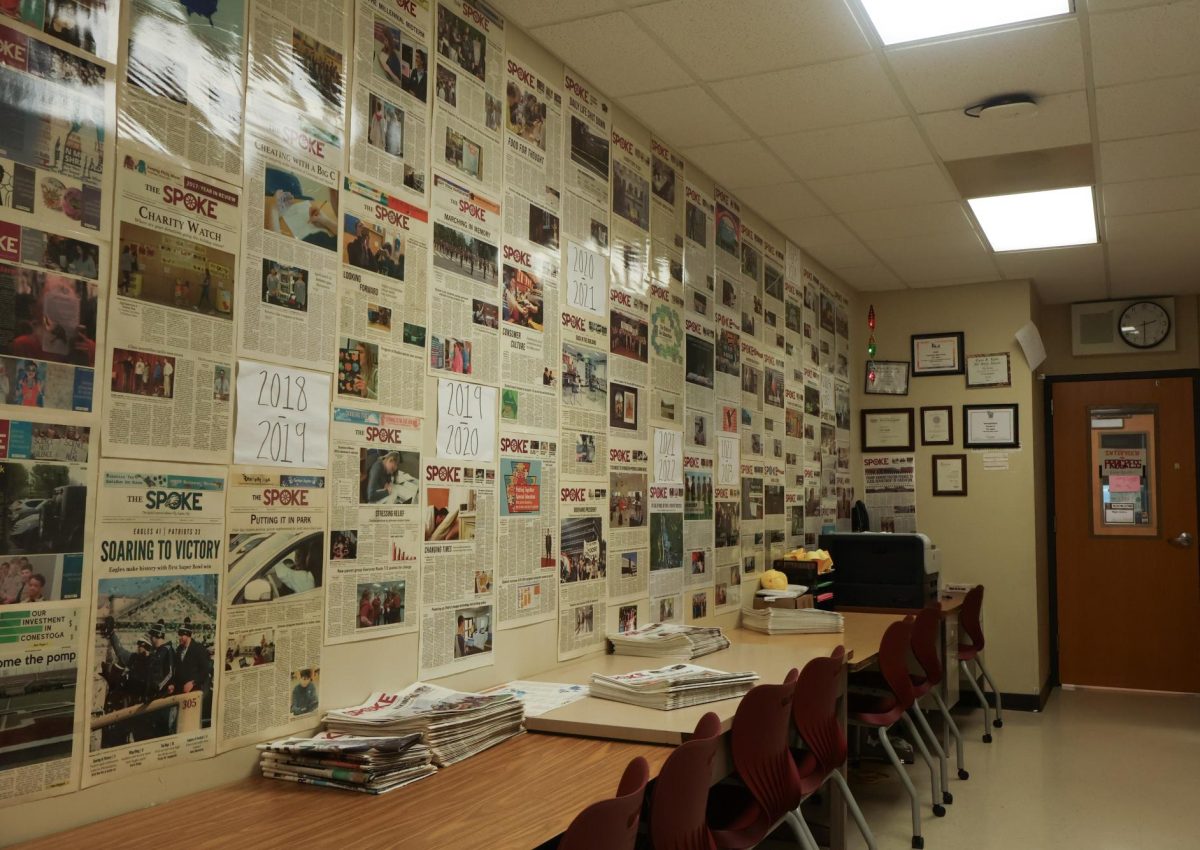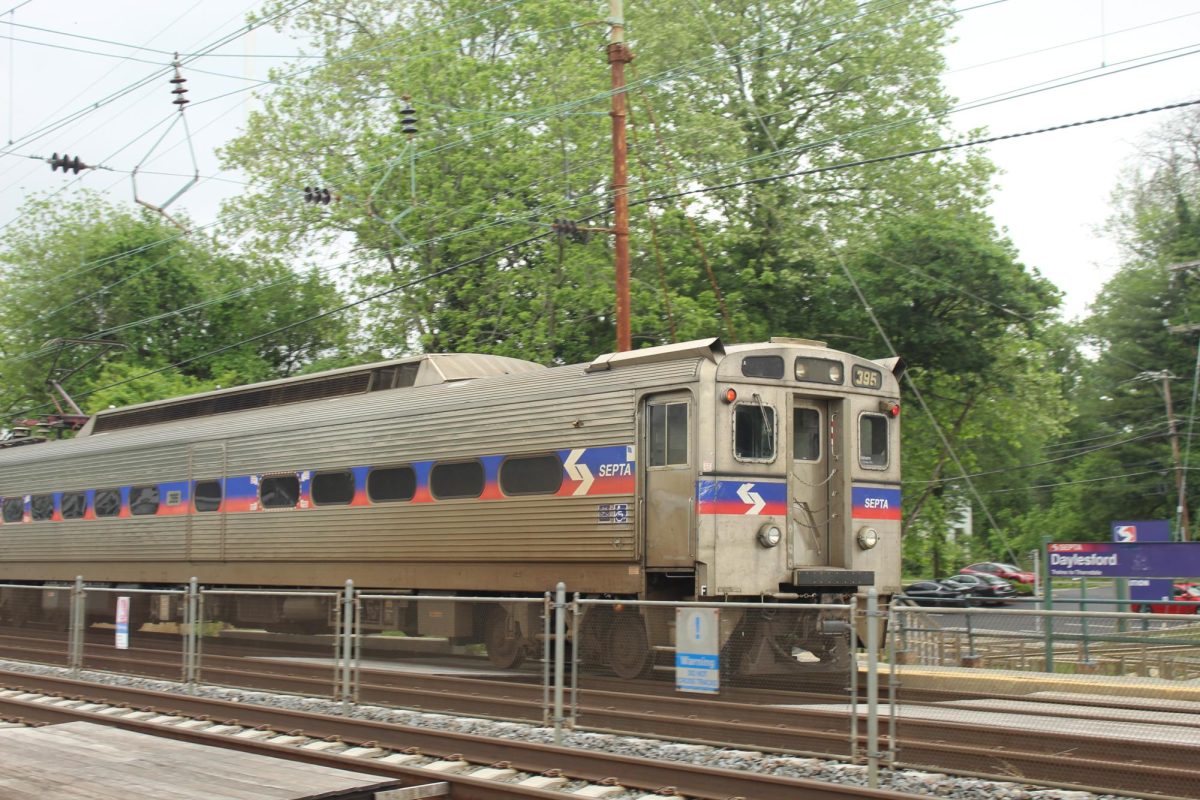By Aren Framil and Faith Zantua, Co-News Editor and Co-Copy Editor
Sophomore Aries Serinsky, co-president of the Jewish Student Alliance (JSA), was overcome with emotion when they learned that their 10-year-old sister began selling bracelets to donate to Friends of the Israel Defense Forces, a nonprofit that supports Israeli soldiers, amidst the present Israel-Hamas war.
“After the initial attack by Hamas, (my family and I) were all so upset and traumatized. I guess she just wanted to do something, and so she started making these bracelets,” Serinsky said. “I was actually calling my mother after school one day, and she told me that my sister had started doing it. I burst into tears. It makes me really happy that she’s doing something and that it’s something that is just so wholesome.”
Sophomore Rayan Niaz helped the Muslim Student Association (MSA) run an in-school bake sale to raise money for the United Nations Relief and Works Agency for Palestine Refugees, which provides aid to Palestinians displaced by the Israeli-Palestinian conflict.
“We just want to support our Muslim brothers and sisters and other people as well because there’s also other religious groups in (the Palestinian territories),” said Niaz, MSA treasurer. “It’s in our religion and in our hearts to support people in need.”
The ongoing war between Israel and Hamas, which is part of the greater ongoing Israeli-Palestinian conflict, has spurred some students and community members to take action and aid those involved in the war.
Local residents, communities connect to conflict
On Oct. 7, the Palestinian militant group Hamas attacked Israel. According to Israeli officials, as of Dec. 1, Hamas killed more than 1,200 Israelis. Israel responded by declaring war on Hamas and bombing the Gaza Strip, a Palestinian territory. According to the Palestinian Health Ministry, as of Dec. 1, Israeli attacks killed more than 15,000 and displaced around 1.2 million Palestinians.
The conflict has directly impacted local community members, especially students with family and friends in the Middle East. Sophomore Maddy Fitzgerald, who has Israeli relatives, feels that the Israeli-Palestinian conflict has caused unnecessary violence and division.
“This war between Israel and Palestine has been happening for years. I know people in Israel, and I have family in Israel, but I also know that there’s people suffering on both sides, which makes it even scarier,” Fitzgerald said. “Both in Palestine and Israel, we have this issue of war and violence that’s unnecessary and forcing people to choose a side.”
Sophomore Maira Usmani, an MSA member, said that the videos she has seen online depicting the violence against Palestinians have had a deep emotional impact on her.
“I feel so hopeless, helpless and guilty about it,” Usmani said. “I’m here, and I’m living a very comfortable life. But when I see videos of children under rubble — Palestinians — I can’t even imagine what they’re going through right now and how strong they are. I feel so guilty. What did I do to live so comfortably in this place while children are being murdered by these bombs?”
On Oct. 11, in an effort to support students, families and staff affected by the conflict, TESD Superintendent Dr. Richard Gusick posted a “Letter to Community” on the district website offering the district’s counseling services.
“TESD continues to condemn acts of terror and violence against innocent people and to support tolerance and peace. Deeply disturbing reports continue to surface from the region. It is natural for children to want to talk about what they are hearing and seeing,” Gusick wrote. “In TESD, we value our diversity and our willingness to care for each other in difficult moments.”
Some connect rising religious discrimination to conflict
Across the U.S., there has been an increase in antisemitic and anti-Muslim discrimination, which some have linked to the latest Israel-Hamas war.
The Anti-Defamation League reported more than 300 antisemitic incidents in the U.S. from Oct. 7-23, a nearly 400% increase when compared to the same time frame last year. The Center for American-Islamic Relations received more than 1,200 reports of anti-Arab and anti-Muslim incidents in the U.S. from Oct. 7 to Nov. 4, a 216% increase when compared to last year.
Some members of the community have personally felt an increase in antisemitic and anti-Muslim discrimination.
Rabbi Michelle Pearlman of Beth Chaim Reform Congregation, a Jewish congregation in Malvern, said that the recent Israel-Hamas conflict has sparked fear for some congregation members.
“Someone called me and asked me if it was time to leave the country. There are students and adults in our community who are afraid to wear their Jewish stars in public,” Pearlman said. “In my time as a rabbi, I never thought I would have to deal with threats like this: threats of swatting or bomb threats.”
On Nov. 2, the word “terrorist” was written on the front door of Khair Community Center’s mosque, an Islamic organization in Montgomery County.
Bilal Baqai, a board member for the center, said that he has witnessed a general rise in Islamophobia recently.
“We have seen increasing amounts of acts of Islamophobia against Muslims, whether it is vandalism at mosques, kids being called out and bullied at school or people receiving threats for being visibly Muslim,” Baqai said. “It seems like the general public is more comfortable acting out against Muslims at this time.”
Serinsky feels that people have been using the recent conflict to justify hate, resulting in a general increase in antisemitism.
“I am very grateful to live in a community where I think I don’t have to fear as much as other communities may have to,” Serinsky said. “It’s been very disheartening to see so much antisemitism and hatred and people villainizing my people. I think a lot of people are forgetting that there are only 15 million of us in the world. We are still such a minority.”
Although Usmani feels that the recent violence has fostered more discrimination, she feels it has also served as an opportunity for people to come together to oppose hatred.
“It has promoted antisemitism and Islamophobia, and I’m very against the two. But also, I feel like this conflict has also shown the best in people,” Usmani said. “There’s been many others from all nationalities, from all religions, talking about this. I feel like if we’re all united in it, standing up against one thing.”
Some have wrongly equated the Israeli government’s and Hamas’ views and actions to those of Jews and Palestinians, respectively. Junior Charlize Ko, co-president of the human rights advocacy club AmnestyxStoga, believes that this mindset encourages hatred and dispute.
Communities, organizations across nation speak out
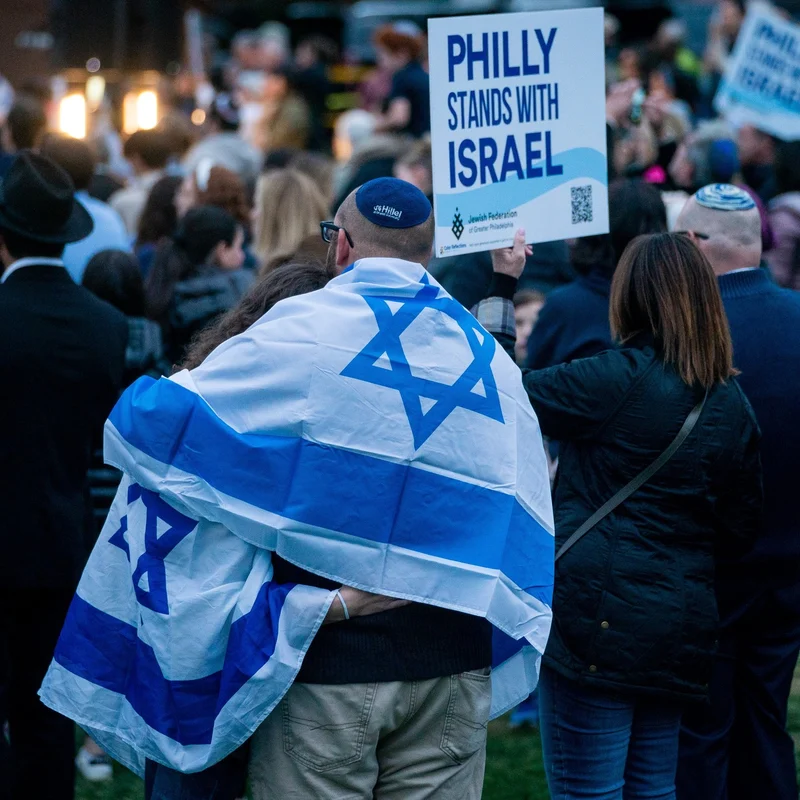
The Israel-Hamas war has spurred global action, both in response to the Palestinian and Israeli civilian casualties and to the rise in antisemitic and anti-Muslim hate speech and violence. Protests, rallies and walkouts are occurring in more than 130 countries to express support and push for political action in Israel and the Palestinian territories.
Residents and organizations have also taken to the streets locally in demonstrations regarding the conflict. The Chester County branch of the Party for Socialism and Liberation held a rally in Phoenixville on Oct. 28 to raise support and awareness for the Palestinians impacted by Israeli attacks.
Downingtown resident Syed Gilleni attended the protest to urge U.S. government officials to stop funding the Israeli military.
“The last few weeks, Israel (has been) attacking innocent children, women and old people, and disabled people. They are not killing hundreds, they are killing thousands,” Gilleni said. “I’m a citizen of the United States, and I feel like I’m responsible because my government is supporting Israel, with their weapons, with our taxpayer money.”
Pro-Israeli marches have also occurred locally. On Oct. 16, the Jewish Federation of Greater Philadelphia, a nonprofit organization focused on strengthening Jewish communities, held a rally in Philadelphia to express solidarity with the victims of the Oct. 7 Hamas attack.
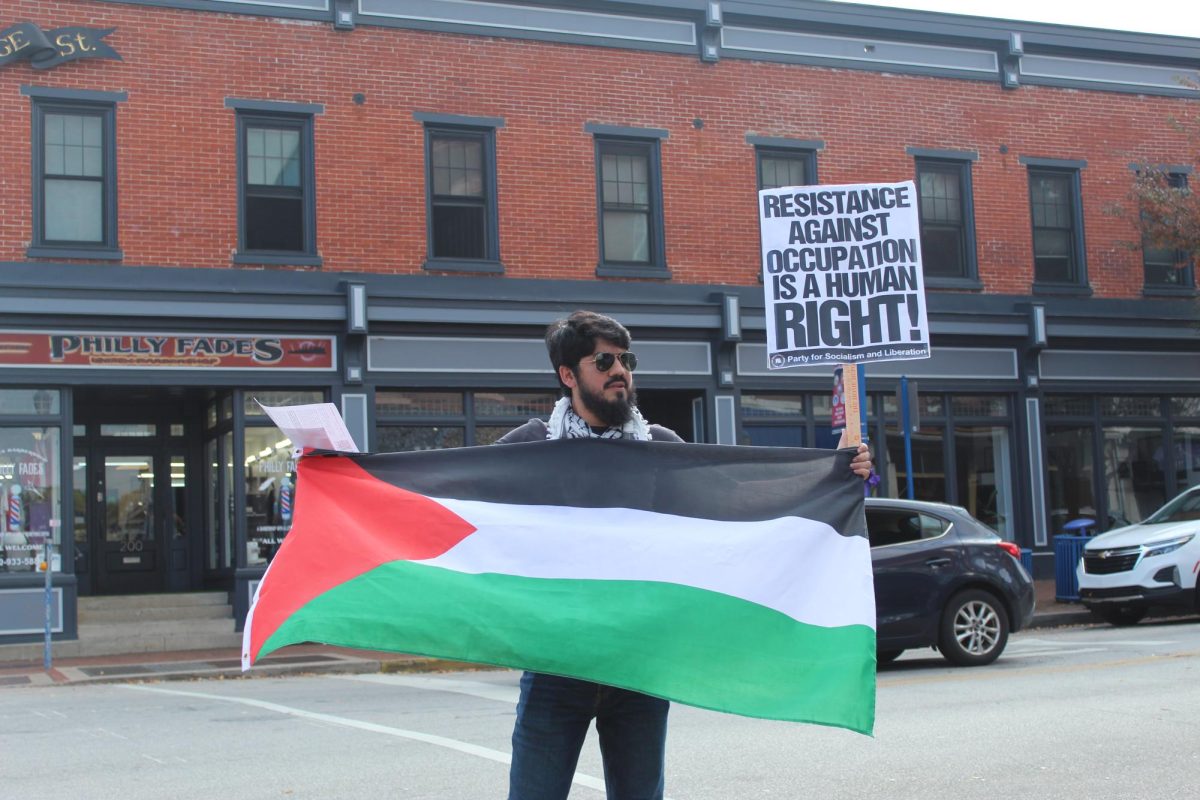
Max Moline, the federation’s director of community development, believes the march demonstrated that the Jewish community will remain unified in the face of antisemitism.
“The purpose of that event was to demonstrate our unwavering support and solidarity with Israel, with the victims and their families and to show that the Jewish community is not going away,” Moline said. “There have been antisemitic incidents throughout Greater Philadelphia in places that you would never expect, and people being accosted just for being Jewish, not having said anything about Israel one way or the other.”
Some members of the Muslim community in Pennsylvania feel the state government’s response to rising Islamophobia has been insufficient. More than 40 Muslim organizations, including the Islamic Society of Chester County, signed a letter to Pennsylvania Governor Josh Shapiro requesting to meet with him to discuss his lack of public acknowledgment of the violence against Palestinians and rising anti-Muslim hate.
According to Abdul Mughees, vice president of the Islamic Society of Chester County, the letter was intended to express to Shapiro how his silence on the violence against Palestinians affects the Muslim community.
“That was a letter wanting the governor of Pennsylvania to understand that he’s governor for everyone,” Mughees said. “If he’s standing up for the Jewish population of Pennsylvania, then he also needs to take care of the Muslim population of Pennsylvania and the Christian population of Pennsylvania and the Sikh population and the Hindu population and whoever else. He is the governor for all of them.”
T/E Jewish Connections, a local group of Jewish families focused on combating antisemitism, wrote in a statement to The Spoke that the foremost thing students can do is to educate themselves and understand that the conflict not only affects Israelis and Palestinians but everyone living in the T/E community.
“Our hearts ache for the meteoric rise in antisemitism and Islamophobia across the globe. Our hearts ache because the lack of peace in Israel and Gaza is incomprehensibly complex and is being oversimplified as people jump to conclusions,” T/E Jewish Connections wrote. “Don’t pull your news from social media memes, posts, or the off-hand opinion of a friend. Render your own educated opinion. For, what is happening many thousands of miles away, and how it is ultimately resolved, will impact all of us for generations to come.”
Aren Framil can be reached at [email protected].
Faith Zantua can be reached at [email protected].
